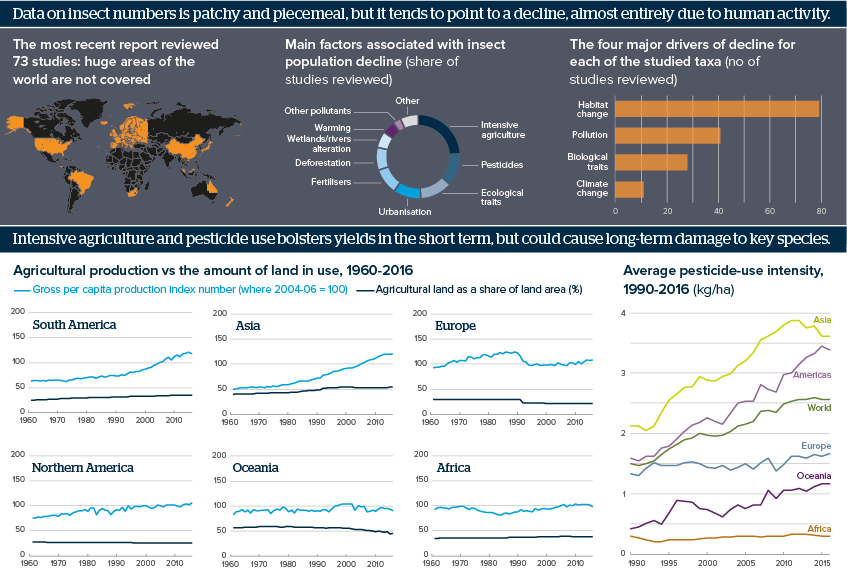Insect decline raises long-term food security risks
The threat facing insects is hard to assess, but some species are clearly at risk and their loss could be devastating
Source: Sanchez-Bayo and Wyckhuys, Worldwide decline of the entomofauna: A review of its drivers, Biological Conservation 232; FAO; media reports
Outlook
An EU ban on three neonicotinoid pesticides came into force in 2018, due to fears over risks to bees. The decision comes amid growing concerns over the future of insect species generally and the impact of their loss on humans.
Studies have long pointed to declining populations but a controversial report this year suggested catastrophic drops in global insect numbers. The report’s methodology and alarming projections are highly questionable, but its publication has spurred fresh debate over agricultural methods.
Insects are vital in food chains both to animals and humans, as prey, supporting birds and amphibians that feed larger species, and as pollinisers, helping to stabilise and improve agricultural yields.
Impacts
- Insects are diverse and resilient -- human activity will never wipe them out, but the loss of key species could threaten entire ecosystems.
- Widespread organic farming would be safer for insects but would require more land that could otherwise be left untouched for wildlife.
- Denmark’s defiance of the EU neonicotinoid ban will help yields of beet (which does not attract bees anyway) but sets a dangerous precedent.
- Global warming and changing weather patterns present further threats to some species but could help others and see distribution shifts.
See also
- Nature-based climate solutions to grow globally - Jul 19, 2019
- International environment action will be insufficient - May 7, 2019
- Technology will revolutionise agriculture and retail - Jan 14, 2019
- More graphic analysis
